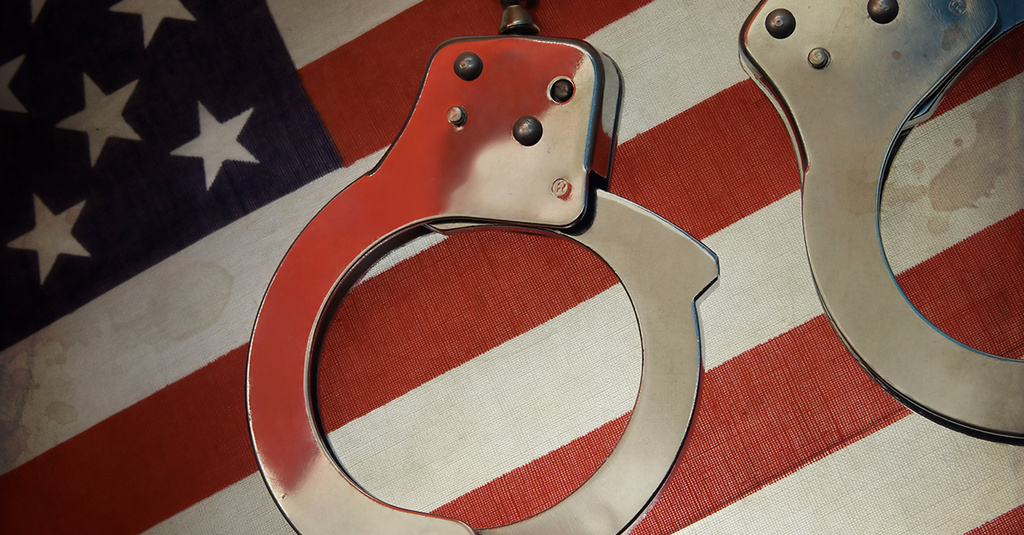
The Security of the State is a Fraud
My father was a keen observer of cultural trends and had the resolve and capacity to view all things through a Biblical lens. .. [He} saw the outcomes of humanistic thinking and the policies and programs that would logically flow from them. More importantly, though, he was ready and able to posit the remedy. He did not merely act as the harbinger of “bad news,” but served as the herald for truly Biblical solutions.

- Mark R. Rushdoony
From the Introduction to Our Threatened Freedom: A Christian View on the Menace of American Statism by R. J. Rushdoony
The collection of 155 essays in this volume was originally recorded as radio spots between 1980 and 1983 by my father, R. J. Rushdoony. Details of where they were originally broadcast and the individuals who were responsible have been lost with the passing of time. The texts were found in my father’s papers, but the sound recordings might have been lost if it were not for Rev. Byron Snapp of Calvary Reformed Presbyterian Church in Hampton, Virginia. He and his wife Janey were original sponsors of their broadcast in South Carolina and still had cassettes of the original recordings. He graciously offered them to Chalcedon in 2005. Since then, they have been used as podcasts by Chalcedon and some of the texts have also been published on www.chalcedon.edu and elsewhere. This is the first time they have been published as a collection. There were originally 169 spots, but a few were deemed to be too dated to contemporary events to warrant publication.
My father was a keen observer of cultural trends and had the resolve and capacity to view all things through a Biblical lens. The topics he addressed were decidedly relevant to his audience when originally broadcast and continue to be thematically relevant into the twenty-first century. My father saw the outcomes of humanistic thinking and the policies and programs that would logically flow from them. More importantly, though, he was ready and able to posit the remedy. He did not merely act as the harbinger of “bad news,” but served as the herald for truly Biblical solutions.
Though some of the specific news events, court cases, or legislation on which he commented are no longer current, he provided us with a mature example of a covenantal, ethical, and judicial examination of current events. His comments are pastoral and theological, not political. Unlike many popular news sources today, he did not put a spin on the news to advance a particular political goal or agenda. His did not mold his message around a conservative Republican agenda—he wrote and spoke as a man who feared God, who saw all of life through the lens of God’s enscriptured Word, and who had a fervent desire to know how God’s Word was applicable to our times.
My father wrote again and again against statism and the pervasive confidence, common to both the left and the right, in political salvation. Whether propounded by those who claim to be liberal or conservative, the end result of that approach is always the empowerment of the state and hence the loss of liberty. Man is saved not by legislation, elections, or politics, but by Jesus Christ; and the fundamental level of government is the self-government of the Christian man before God. Only this represents a real liberty. The security of the state is a fraud, a counterfeit of true freedom which produces dependence on the least productive or progressive aspect of a culture. In these bite-sized, easily-digestible essays, my father gives exposés of both the domination and tyranny of the modern state as well as its pathetic incompetence in trying to supplant the Kingdom of God. The importance of self-government is shown implicitly by contrasting it with the ugly alternative. Freedom is not ultimate in Biblical thought, but it is a necessary element in the fulfillment of our Christian duties. Liberty’s greatest blessing in the Christian perspective is its enablement of the believer’s service in his primary citizenship, that of the Kingdom of God. A slave serves his master. As free men we are called to use our liberty in the service of our God and His Christ.
It is my hope that these brief essays will encourage you in your faith, and serve as a reminder of the great need to think Biblically in all areas of life as you work to exercise dominion in His name.

- Mark R. Rushdoony
Mark R. Rushdoony graduated from Los Angeles Baptist College (now The Master’s College) with a B.A. in history in 1975 and was ordained to the ministry in 1995.
He taught junior and senior high classes in history, Bible, civics and economics at a Christian school in Virginia for three years before joining the staff of Chalcedon in 1978. He was the Director of Chalcedon Christian School for 14 years while teaching full time. He also helped tutor all of his children through high school.
In 1998, he became the President of Chalcedon and Ross House Books, and, more recently another publishing arm, Storehouse Press. Chalcedon and its subsidiaries publish many titles plus CDs, mp3s, and an extensive online archive at www.chalcedon.edu. His biography of his father will be published later this year (2024).
He has written scores of articles for Chalcedon’s publications, both the Chalcedon Report and Faith for all of Life. He was a contributing author to The Great Christian Revolution (1991). He has spoken at numerous conferences and churches in the U.S. and abroad.
Mark Rushdoony has lived in Vallecito, California, since 1978. His wife, Darlene, and he have been married since 1976. He has four married children and nine grandchildren.